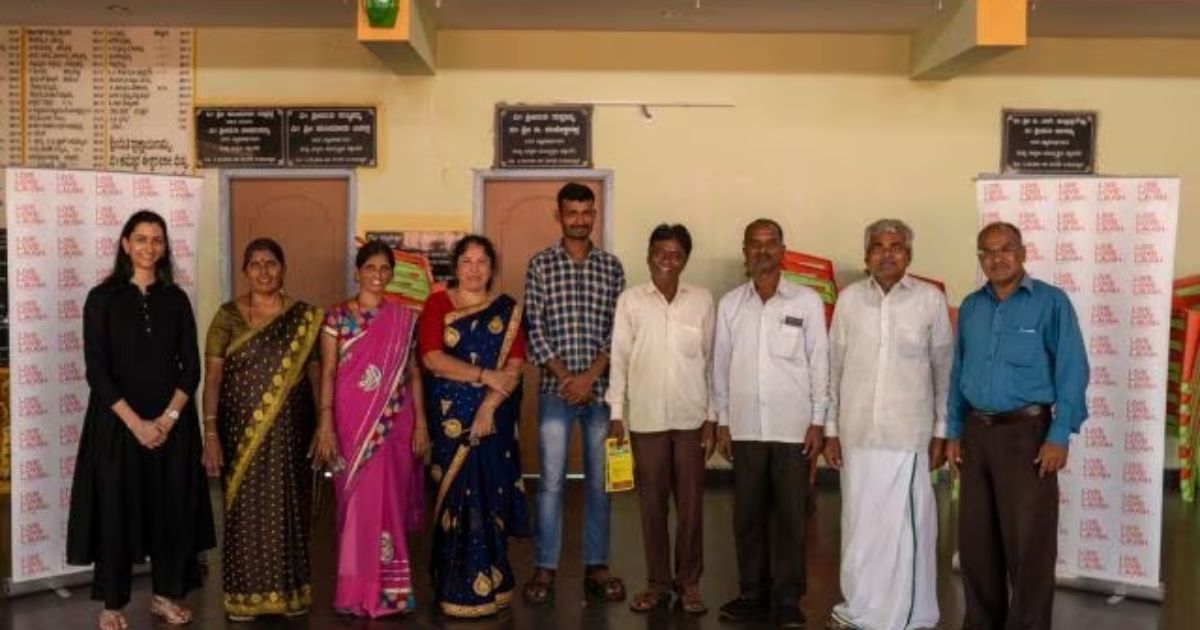Overcoming Adversity: A Story of Hope and Resilience
A rural mental health program came into picture when eight years ago, Nagamma from Channagiri taluk in Karnataka’s Davangere, woke up to face a very personal fight against despair caused by her son Chandan’s severe mental illness.
Her son Chandan suffered a fall from two storey building which led to brain injury and diagnosed with mental disorder that made him aggressive thus leading to agony on the family putting Nagamma in suicidal thoughts.
However, a beacon of hope emerged through a rural mental health program, catalyzing Chandans recovery.
In collaboration with Association of People with Disability (APD) and ASHA workers, LiveLoveLaugh (LLL), a charitable trust that is managed by Deepika Padukone, an actress, managed to get its grip into the life of Chandan who now works as a security guard in Davangere city.
Holistic Approach for Change: Awareness, Accessibility, and Affordability through Rural Mental Health Program
The success story in Davangere is a result of Cordial approach under Community Mental Health Programme (CMHP) launched by LiveLoveLaugh together with APD in 2016.
The program adopted different strategies such as street plays, training for frontline workers, treatment access and livelihood support among other things while stressing on awareness, accessibility and affordability.
Anisha Padukone highlights the impact of such programs by saying that “we have empowered the community over the last seven years to independently manage the program impacting over 2,178 Persons with Mental Illness (PWMIs) and 8,172 caregivers.”
From Stigma to Support: Breaking Cultural Barriers
Before Ukkadagatri temple rejected them as mentally ill people by using supernatural rituals, their fate was left at the mercy of village elders within rural areas of Davangere.
She also showed how her son underwent social discrimination due to misunderstanding around his ailment stressing the fact that, her son’s illness demanded medical and not traditional healing.
APD and LLL challenged this misconception by advocating for identification and treatment of mental illness through accessible and affordable healthcare.
With time, Nagamma’s son, Chandan, overcame these problems to get employed and help his family financially.
Embracing Normalcy: Advocacy and Personal Triumph
Lakshmana an accident victim diagnosed with schizophrenia turned into a mental health advocate in Davangere.
In his view, Lakshmana talked about how he had been through strange happenings whereby people would keep away from those with mental illness arguing that they are only fit for nothing but keeping them busy with something.
His wandering behavior turning into fluent speech development indicates the importance of medical interventions.
Challenges and Progress: Upholding Mental Health Advocacy
The program faced challenges, notably in obtaining Unique Disability IDs (UDID) for mental health pension benefits.
Some grassroots workers also had to contend with villagers who relied on superstitions even though they were pushing against those beliefs.
However, according to Dr Siddareddy who is a district mental health program psychiatrist stated that there has been a significant shift; within the last ten years.
More people have been visiting primary health centers implying reduced dependence to supernatural remedies like going to Ukkadagatri temple for treatment.
A Wider Canvas: Extending Impact Across States
Beyond Davangere, LiveLoveLaugh’s rural mental health program expanded across multiple states including Karnataka, Tamil Nadu, Kerala Madhya Pradesh Himachal Pradesh Odisha.
Treated 4314 Persons with Mental Illness, provided support for 13005 caregivers, trained over 21000 community leaders & ASHA workers.
Redefining Mental Health Paradigms
In conclusion, the success of the Davangere program highlights the transformative potential of community-driven mental health initiatives by dispelling stigma, promoting awareness, and ensuring accessible care, it has empowered individuals, enabling their reintegration into society.
As mental health programs expand their reach, the narrative shifts from isolation and superstition to inclusivity and medical intervention, heralding a new era of mental health advocacy in rural India.

